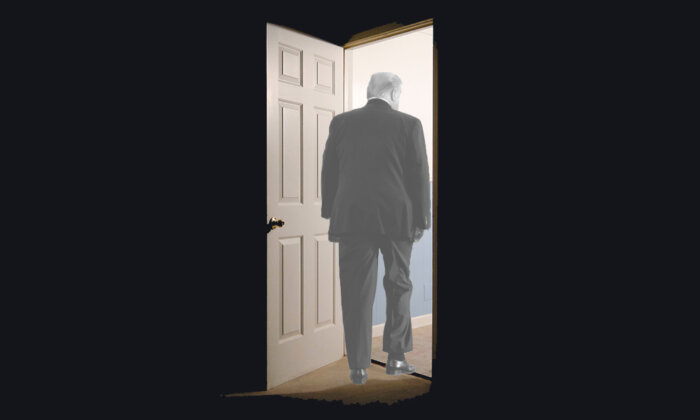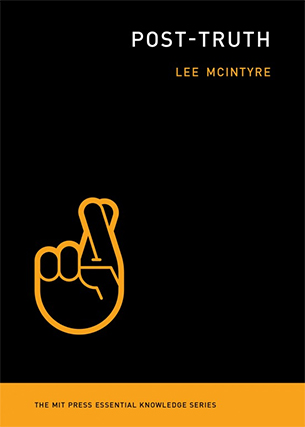How To Handle Post-Truth Now That Trump Is Gone

For a liar, media coverage is oxygen. Airtime and print space are the means by which “alternative facts” find their audience.
During the Trump presidency, reporters often treated whatever Trump said as “news” just because he was president, even when they knew he was lying. But especially during his last months in office, when Trump devolved into a frenzy of denial over the results of the 2020 presidential election — and more than 100 Members of Congress put their chips in with him, let’s not forget — it became apparent that the problem of “post-truth” isn’t going to disappear with Trump’s turn at the bully pulpit.

Now that Trump’s Twitter account has been suspended, the primary way for MAGA disinformation to make its way to the public is through media coverage. So how should journalists handle the hangover of folks who still won’t acknowledge reality, including Trump himself? My recommendation, based on two decades of research on science denial, is that the best way to handle Trump and his minions is to treat them the same way you would flat earthers and anti-vaxxers. Acknowledge that they exist, but refuse to cover their message as if it held a competing narrative for truth.
Lessons From Science Denial
Recent empirical work by Philipp Schmid and Cornelia Betsch in the journal Nature Human Behavior has shown that various techniques — from debunking to prebunking, using either expert scientific content or attacking the reasoning strategy used by all science deniers — can be quite effective in pushing back against science deniers. Knowing this, it is borderline malpractice to refuse to do so, which only enables the kind of faux-skepticism and disinformation that undermines science. Yet it is important to note one caveat: Once lies and misunderstandings are out there they can only be mitigated, not completely overturned. While it is better to engage with a science denier than to ignore them, one needs to be careful not to do so in a public forum, which might inadvertently give a platform to false information.
Once lies and misunderstandings are out there they can only be mitigated, not completely overturned.
The specter of 60 years of mishandling science denial demonstrates perfectly why the media must no longer be complicit in the amplification of reality-subverting propaganda, even when it comes from the White House. Just as it is no longer good journalistic practice to give equal time to climate deniers in a split screen debate with climate scientists, devoting too much coverage to Trump’s fiction of voter fraud merely enables the political subordination of reality.
Of course, if the media were to stop covering Trump — and Trumpists — it might lead to accusations of bias. Given the divisions we already have in this country, aren’t journalists obligated to “tell both sides?”
No, they are not. If half the country believed, without evidence, that flesh-eating aliens were going to descend on planet Earth just in time for the 2024 presidential election, it might be “news” as a sociological phenomenon, but one would not expect to hear serious discussion about the content of such beliefs. Just as legitimate journalists do not offer rebuttal time to anti-maskers who dispute Dr. Fauci’s advice about good public health practices during a pandemic, the media need not feel compelled to delve into the wild claims of the QAnon conspiracy (even to disprove them), nor Trump’s fact-free claims of election fraud that led to the Capitol riot.
The Road Ahead
So what is the best way to report on liars in the post-Trump era? A good start would be to improve on how they were handled when Trump was president.
In 2018, cognitive linguist George Lakoff recommended that the best way to report on a lie is to serve up a “truth sandwich.” First report the truth, then report on the lie once it is clear what the liar was trying to gain, and then report the truth again. I defy anyone to go back and watch CNN’s unedited, full-length coverage of Trump’s rallies from 2015 and 2016 — when it offered no political commentary and no interruption whatsoever — and disagree with the idea that they helped to create the post-truth monster we have all lived with for the last four years.
And in the future? I think we’re safely past the point of using the excuse that anything Trump says is news just because he said it. The speculations and conspiracy theories of an ex-President are surely less newsworthy than the truth itself.
It is a well-worn cliché that sunlight is the best disinfectant. But that does not mean an unregulated free market for ideas will always sort things out. As we have seen, giving a platform to those who eschew the scientist’s respect for testing and evidence leads to confusion, not truth. And why should it be any different for other sorts of factual beliefs? Even in the realm of government, not every disagreement is partisan. Or, as the great political orator Daniel Patrick Moynihan once said, “you are entitled to your own opinion, but not your own facts.”
Instead of sunlight, let’s give liars the obscurity they deserve. Maybe then we can heal the country, and our respect for truth alongside it.
Lee McIntyre is a Research Fellow at the Center for Philosophy and History of Science. He is the author of “Post-Truth,” “The Scientific Attitude,” and the forthcoming book “How to Talk to a Science Denier.”





